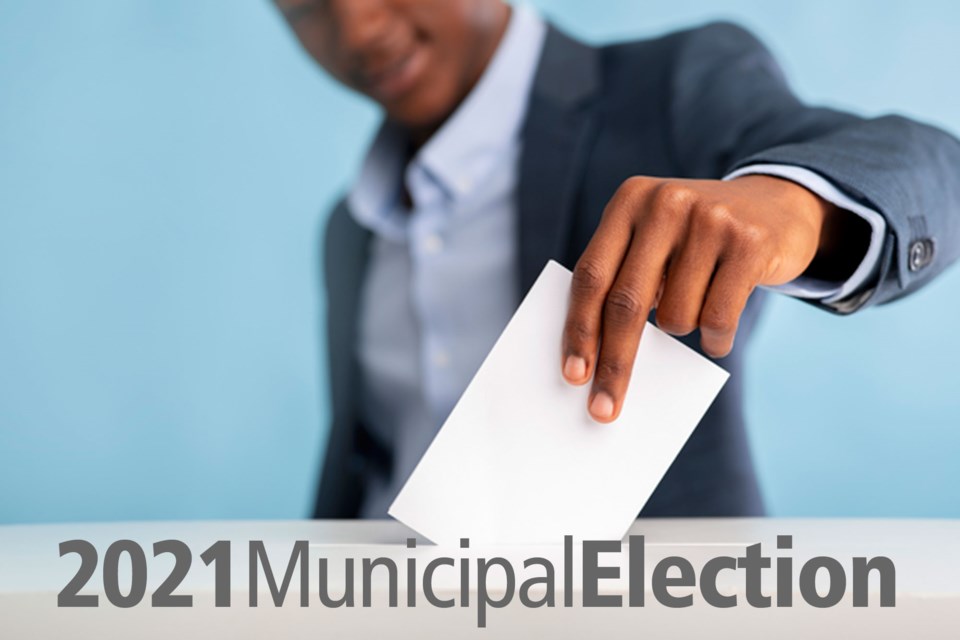The Gazette followed up with council candidates’ questionnaire responses on the city’s repair, maintenance, and replacement (RMR) funding shortfall, if elected.
Ross Guffei said he believes the city doesn’t have an RMR funding shortfall and is often replacing things much earlier than need replacing. Guffei said, if elected, he would look into creating a transportation committee that supervises all projects in the city. Right now, the city pays too much for projects, Guffei said, and dealing with overspending will deal with the RMR shortfall.
Guffei said the city also spends unnecessary money doing and redoing projects, such as the parking in downtown St. Albert.
Shelley Biermanski said council should focus on the priorities of the residents and not the priorities of council to help save money, and to not focus on projects such as changing the speed limit and sending out surveys.
"Whether it be art items or a traffic circle in the city or you name it, there are lots of things we could eliminate," Biermanski said.
Basic services will stay intact, along with the city's green spaces, but other projects that are over-researched and then fall through would be left behind to save money for the RMR budget. Biermanski said things such as paving walkways would be done, as she doesn't want St. Albert to become run-down city.
Kevan Jess also said he believes things are being replaced sooner than needed and the city needs to assess if there are capital projects that may have a longer lifespan than originally thought. Jess said he wants to keep services in St. Albert high, as that is a reason residents like to live in the city, but that doesn't necessarily mean perfection. Jess said the city and elected officials should keep an eye out for alternative sources of revenue that are not detrimental to the residents.
Sandy Clarke said the city needs to identify the needs and wants of the repair, maintain, and replace budget and make sure the city is replacing things when they are needed and not because they are scheduled to be done. The city may be tackling unnecessary issues, such as creating the pedestrian bump-outs for crossing the street, or building extra wants, such as a spray park.
Mike Ferguson also said there are a lot of unnecessary repairs happening in the city and projects could likely be deferred. If deferring the projects doesn't make up for the RMR shortfall, Ferguson would consider cutting services, as many people he has spoken to do not want a tax increase, although he supports increasing taxes to match inflation. Things such as the beautification of the city, including flowers, would be on the chopping block.
Ferguson said he supports finding alternative sources of revenue, including the solar farm, as he sees them cropping up everywhere and they are being made to create a profit. Ferguson said it would be important to keep an eye on the solar project to ensure it didn't run over budget.
Jennifer Cote said the city is currently looking at areas to generate revenue and it will be important to look at ways to reduce costs, too. Looking at a list of all the services the city provides and finding ways to save money would be preferable to raising taxes for residents who may be in a difficult time due to COVID-19.
Cote has heard from many residents who want transit to be examined to find efficiencies. Overall Cote would prioritize services through public engagement.
"I would take it to the community and see what people are comfortable with, as far as introduction of efficiencies that would impact service levels," Cote said.
Gilbert Cantin said it is important to find efficiencies in the operation of the city, and make sure projects are coming in on budget. Cantin would sort out which projects are wants and which are needs. Basic things such as garbage pickup and sewer would be considered essential, but things related to leisure may be considered wants.
"I see a lot of people that are not accountable for what they spend and its like that across the government," Cantin said.
To solve the RMR shortfall, Cantin said it would require thinking outside the box. He said he doesn't think the solar farm will make money because it is managed by the government, which is inefficient with money.
Rachel Jones said the city should consider alternative sources of revenue, such as the solar farm, or more variety in fees charged for services in the city to encourage more use. Jones said having things such as a different variety of waste and brown bag pickups residents could pay for or have a pool-only fee-for-service would encourage more use of public services and also help the city generate money.
Jones said council needs to make sure there is buy-in and support from residents for any new fees or services implemented and ensure it aligns with the vision for the future of the city. Raising taxes rather than finding alternative revenue streams could impact residents who are on fixed incomes could price some people out of the city, Jones said.




